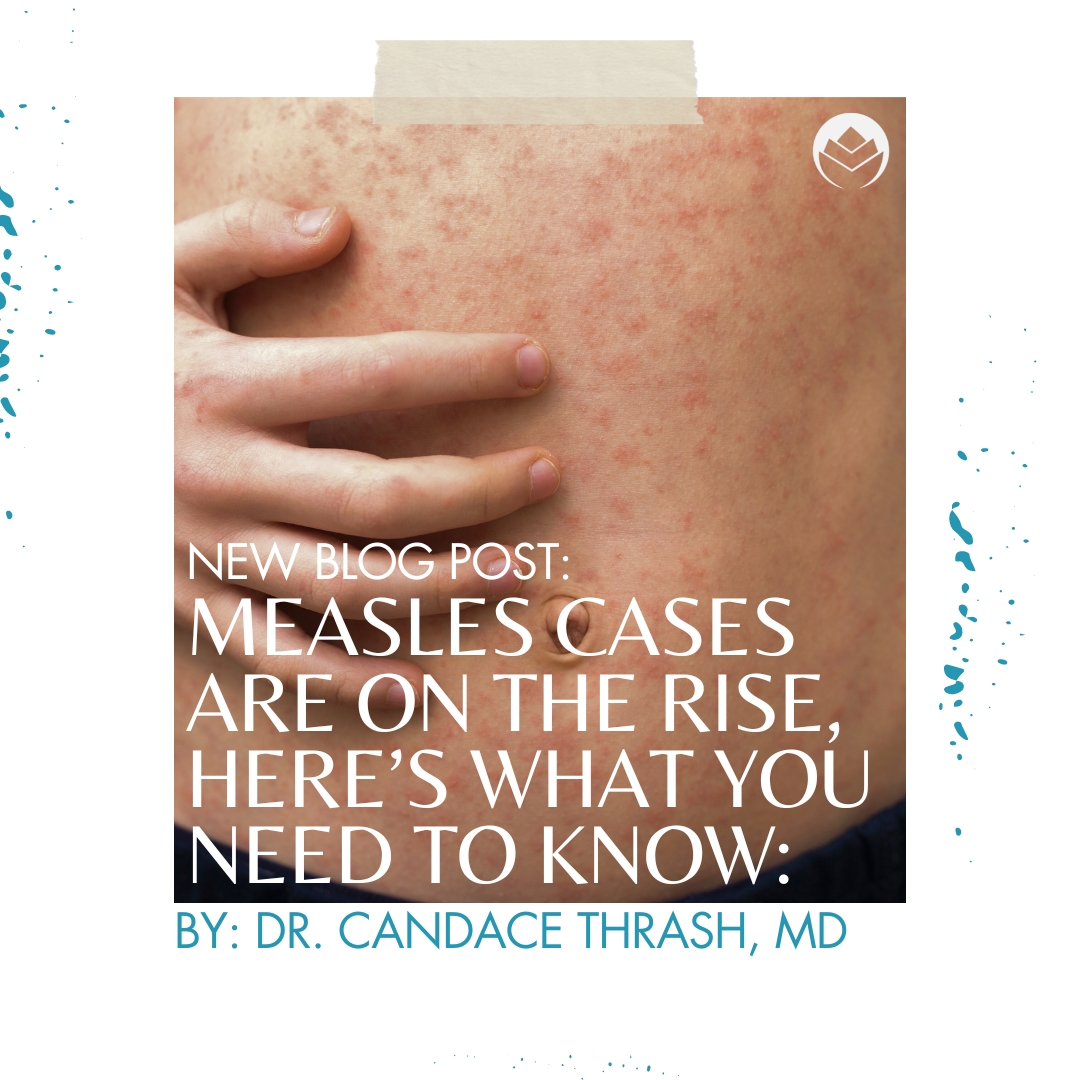Measles has been all but eradicated for most of my career, but in recent years cases have been popping up, and now it’s significantly on the rise. It causes a high fever and respiratory problems which can actually be life-threatening, so it’s important to be aware of this rising concern.
The reason for the increase in cases comes down to a decrease in vaccination rates.
Measles is highly contagious, and it has a long incubation period. In fact, a person can be infected for 7-10 days before they start to feel sick. In that time, they can spread it to many other people.
Measles is so contagious that one infected child can infect 10 other unvaccinated people before he starts to have symptoms.
90% of people who are not vaccinated will catch measles if they come in contact with an infected person.
Measles is a respiratory virus, which means it is spread through the air by coughing and sneezing.
The first symptoms of measles are spots inside the mouth, followed by high fever, fatigue, red eyes, cough, and a runny nose.
The rash of measles consists of red spots, which usually don’t itch. It begins on the face and ears then spreads to the trunk and extremities. As the rash fades it may turn more brown and begin peeling.
The treatment for measles consists primarily of rest, fluids, and Tylenol or Advil to bring down the fever. People with measles should stay home until they have been fever free for at least 24 hours and the rash has been present for at least 4 days.
Tests for measles can be in the form of a nasal swab, blood test, or urine sample.
The best option for measles is to avoid getting it in the first place, by getting vaccinated. Adults who were vaccinated as kids do not need to get a booster, their immunity should be lifelong.
The measles vaccine is included in the childhood vaccines known as MMR or MMRV. Children generally receive two doses, one at 1 year of age and another right before kindergarten. Kids or adults who need to get caught up on their vaccinations can receive two doses 4 weeks apart.
 About Dr. Thrash
About Dr. Thrash
Dr. Candace Thrash, MD is a board-certified dermatologist specializing in medical and cosmetic dermatology. With over 20 years of experience, she excels in treating a wide range of skin conditions. Her philosophy is that treatments should be tailored to each unique individual. Her compassionate approach, clinical expertise, and meticulous attention to detail make her a patient favorite at Sanova Dermatology. She currently practices out of our Bee Cave & Lakeway location, to schedule your visit with her click here.


